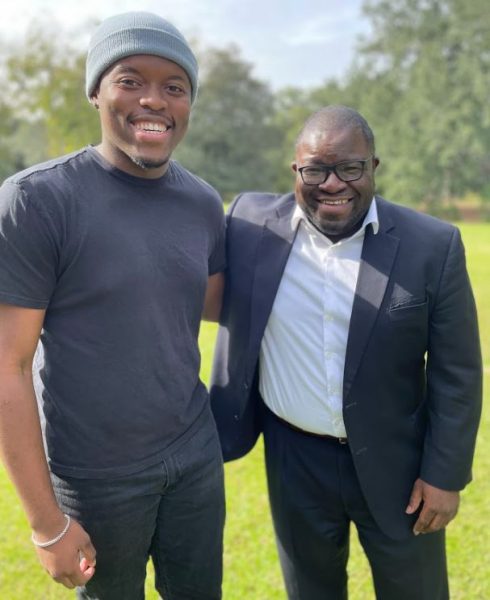Mentorship helps first-generation student Ty Hill succeed at Georgia Southern
When Georgia Southern University senior Ty Hill, a communications studies major, graduates in fall 2023, he will be the first person in his family to earn a four-year bachelor’s degree. As a first-generation college student, Hill is breaking barriers and making history in his own lineage.

“Being the first in my family to achieve a four-year degree will be a testament to the fact that I’ve overcome the odds and didn’t let the pressure get to me,” Hill said. “Once I achieve this, I feel like it will be the start of many accomplishments to come in my family.”
Hill, like many Georgia Southern students and other college students around the country, are being celebrated this week as Nov. 8 was National First-Generation Celebration Day. Georgia Southern celebrates its first-gen students, faculty and staff annually during the first week of November during National First-Generation Celebration Week.
“One of the great things about this time of celebration is the opportunity for students to see that they are not the only ones,” said Leslie Harris, director of Student Support Services at Georgia Southern. “That not only are there fellow students who are navigating college as first-generation students, but there are also many faculty and staff who have gone through the journey themselves and are willing to be a resource.”
Upon being accepted to Georgia Southern and preparing to move away from home in Gordon, Georgia, for the first time, Hill hit a few bumps in the road. Setting out on a new adventure like college was tough not only because he was on his own, but also because he didn’t know what to expect.
“As my parents, my grandma and brother moved me into my dorm, they all assured me that this would be a tough journey, but when I graduated, I would make history in our family,” Hill said.
He used this as motivation when he encountered more obstacles when beginning his journey as a student. The most difficult part of acclimating to college, Hill said, was not knowing many people.
“As a first-gen student, the hardest challenge I had faced was finding a group to fit in with, as in finding people who face the same amount of pressure as me to become the first college graduate in their family,” Hill said. “However, by finding Student Support Services, the access to these kinds of people became completely open and I was able to get the support I need from other students, and give it back to them.”
Georgia Southern’s TRIO Student Support Services and the McNair Scholars Program offer resources such as advising, academic coaching, tutoring, peer mentorship, faculty mentorship and more, all geared toward first-generation students.
Through student services, Hill found several lifelong mentors, including Student Support Services staff members Penny Hedrix, Janet O’Brien and Harris.
Thanks to his mentorship with Harris, Hill also has built a connection with Dominique Quarles, Ph.D., Georgia Southern’s associate vice president for Inclusive Excellence and chief diversity officer.
“Working with Dr. Quarles has given me insight into new parts of the communications field,” Hill said. “He has challenged me to find different facets in the communication field that I would like to pursue. In our last meeting, he walked me through his experience from age 21 to where he is now. By sharing this with me, I feel like we related on a personal level and that we have formed a bond. I truly feel that by hearing his story, this could definitely help me in the long run.”
Quarles, who also is first-gen, enjoys being a mentor for students.
“Speaking with Ty reminds me of where I was in life and the obstacles I faced at his age,” Quarles said. “I know that I benefit from mentoring Ty as much as he does from connecting with me.”
Meeting students where they are currently in their lives is an important part of how Quarles connects with them.
“As an administrator on campus and a mentor for multiple students, it’s important for me to see what they need and what kind of coaching they need in that moment to make their version of their story a success,” Quarles said.
By asking questions and better understanding where a student is in their journey allows him to determine what kind of coach he can be for them.
“When folks come to me, I ask them ‘What role would you like me to play?’,” he said. “I can be the cheerleader that tells you to keep going and keep pursuing. Or you may just want me to sit with you and be sad with you, and that is perfectly fine for us to sit down, take some time in solitude and be sad.
“But my favorite moment of coaching students through situations is when I feel like the student is not seeing me as Dr. Quarles. They are seeing me simply as a person who’s trying to give them help,” he said.
Posted in Press Releases

